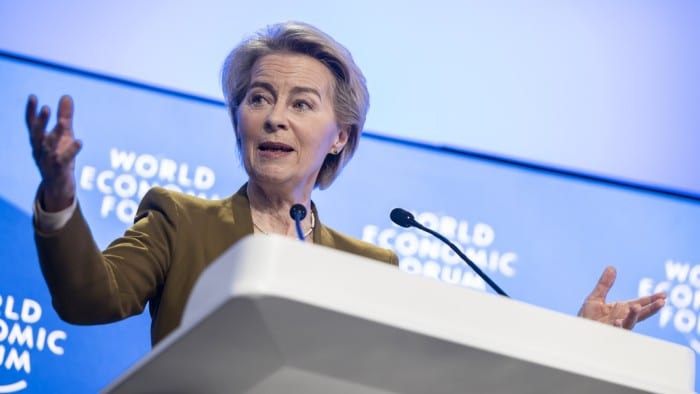[adrotate group="2"]
Brussels is poised to endorse measures allowing governments to exclude foreign bidders in favor of local businesses, mirroring the “America First” policy of the Trump administration. This initiative aims to enable European governments to safeguard pivotal sectors and technologies from lower-priced competition from countries like China.
According to a draft plan, the European Commission intends to propose a European preference in public procurement for essential sectors. This initiative, which stems from reforms advocated by former Italian Prime Minister Mario Draghi, remains under discussion and might undergo modifications ahead of its official announcement.
The “Buy European” concept has been a topic of ongoing debate in Brussels but has previously faced resistance from economically liberal member states. The current push aligns with U.S. efforts to prioritize domestic procurement. Officials argue that the decline in Europe-based production capabilities in critical sectors could result in the EU becoming overly reliant on imports.
The proposal emphasizes the necessity for Europe to maintain its own capacities amid market access restrictions imposed by major global players. Stéphane Séjourné, the French commissioner for industrial strategy, has indicated that revising public procurement and state aid regulations is part of a broader effort to put European principles into action.
Plans are underway to amend the public procurement directive next year, which currently mandates equal treatment for all applicants and prohibits discrimination. Additionally, the EU holds commitments as a signatory to the World Trade Organization’s government procurement agreement, which states that measures should not protect domestic suppliers or discriminate against foreign entities.
Should this policy be approved by member states, it would represent a significant shift in the EU’s stance, particularly given its recent initiatives against China for perceived discriminatory practices and previous legal actions against the UK concerning favoritism towards locally produced wind turbines.
Legal experts warn that the EU might face international challenges and internal scrutiny regarding compliance with both WTO obligations and its own legal frameworks. As such, the EU will need to tread carefully to ensure alignment with established rules.
If this proposal withstands scrutiny, it would signify a win for France, which has pushed for increased strategic autonomy by favoring local firms.
The leaked document also outlines plans to reduce bureaucratic burdens on EU businesses by 25 to 35 percent, though it lacks a clear baseline for measurement. It proposes nearly 40 new legislative actions and sector strategies, including acts focused on biotechnology, space, critical medicines, and the chemicals industry, all aimed at enhancing EU research and supporting domestic enterprises.
In light of rising geopolitical tensions and competition for technological dominance, the document argues that Europe’s innovation and competitive edge are vital to its freedom, security, and autonomy. The commission has refrained from commenting on the draft proposals.
photo credit: www.ft.com
[adrotate group="2"]





